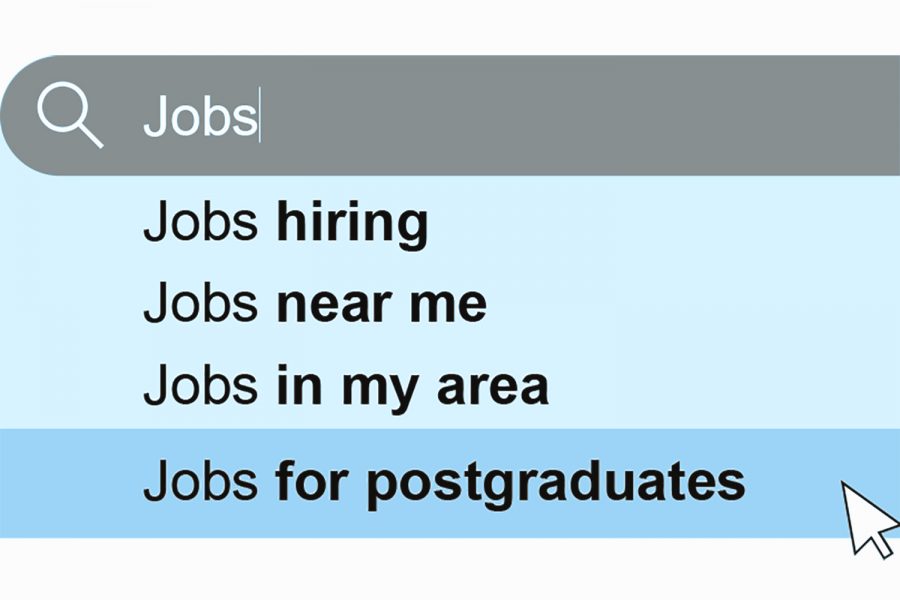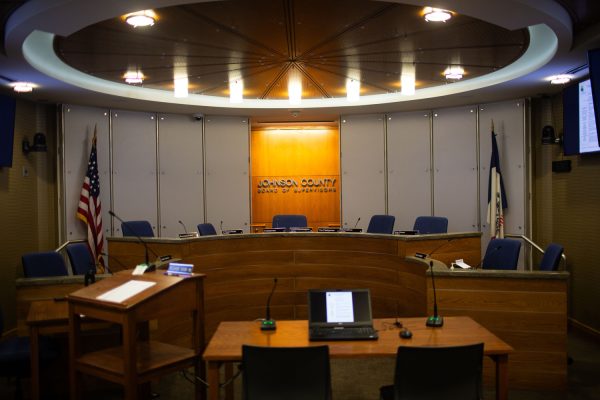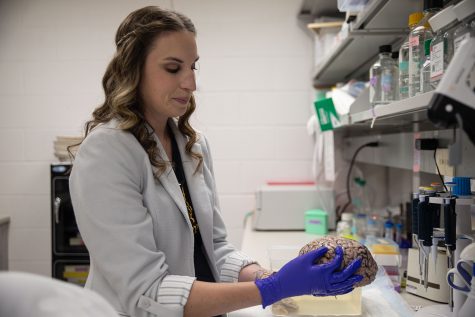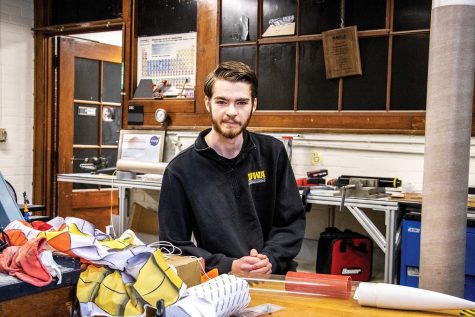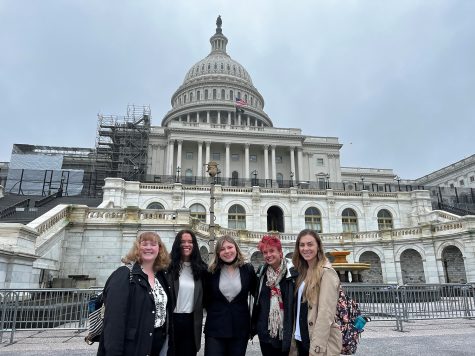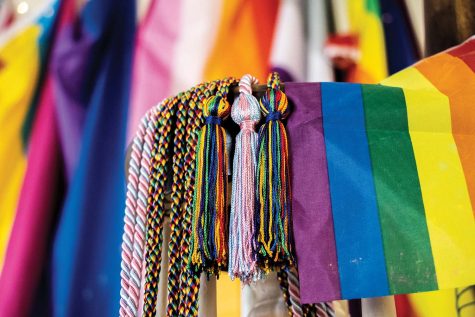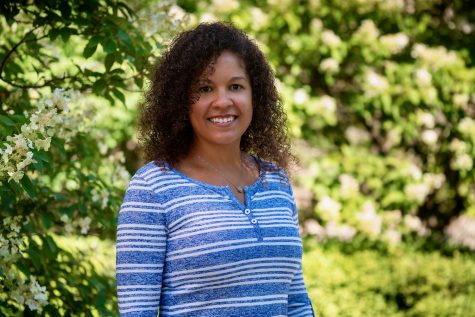Unprecedented economic conditions loom over UI graduates as they enter workforce
The outbreak of the novel coronavirus has led to an economic recession, adding to the stress of UI graduating seniors.
May 10, 2020
COVID-19 has changed the job search for several University of Iowa seniors as they enter the workforce while facing the greatest low point for the U.S. economy since the Great Depression.
UI senior Isabella Penniston said she is “lucky” to have accepted a job as a cardiovascular nurse at University of Wisconsin Health in Madison for fall 2020. Penniston said the start date of this position has left her in need of a summer job, however.
“I’ve tried applying to so many different jobs,” Penniston said. “I go to the call for positions and they say, ‘Sorry, we aren’t hiring at this time.’ ”
The scarcity of both full-time and part-time jobs is incredibly frustrating, Penniston said. The financial stress of needing a general job to cover expenses until she starts her full-time position at UW Health is difficult, she said.
“Right now, I feel irritated honestly… but I totally understand why places aren’t hiring because they are under extreme financial stress right now,” she said.
Anne Villamil, an economics professor in the Tippie College of Business, said spring 2020 graduates are entering a difficult and uncertain job market.
“The U.S. economy is in a recession, due to the global COVID-19 pandemic,” Villamil said. “The recession has not yet been officially ‘declared’ by the National Bureau of Economic Research because this typically requires two consecutive quarters of adverse economic performance. There is no doubt, however, that a recession will be declared.”
RELATED: UI seniors face the reality of canceled commencement this spring
The current economic downturn has been dubbed the “Great Cessation,” Villamil said, because it was caused by government mandates to shelter in place and reduce spread of the novel coronavirus. State-ordered business closures have reduced demand for goods and services and, in some cases, the supply of goods and services, she said.
“The current job market is already worse than the job market in the Great Recession in
2007-2009, and some economists expect it to approach the 25 percent unemployment rate during the Great Depression,” Villamil said. “The main question is how long this will last.”
Iowa Workforce Development has 181,358 ongoing claims for unemployment benefits, according to a statistics report from the last week of April, a nearly 13-fold increase from May 2019.
Some U.S. states, including Iowa, are attempting to reopen the economy, she added, but many may be forced to close again in safety of its residents if the virus surges. Gov. Kim Reynolds announced dentists’ offices, malls, certain retail stores, campgrounds, and other select facilities could begin reopening at 50 percent capacity and with additional health precautions in place starting May 8. In 77 of Iowa’s 99 counties, restaurants are also allowed to reopen at half capacity.
Villamil said the coronavirus outbreak is a serious, novel, and highly contagious pandemic, resulting in economic problems. The country needs to do the basic science and implement public-health measures to get the economy back on track, she said.
Sara Burden, senior associate director of employer engagement at the UI Pomerantz Career Center, said many employers have transitioned from conducting in-person to phone interviews, and the center is holding mock phone interviews to help students prepare.
“We tried to connect as quickly as we could with students to make sure that they knew we still existed, Burden said. “We just transitioned all of our advising online and we offer a large list of resources on our website for students to navigate COVID-19.”
There are still several job and internship posts on Handshake, an online recruiting system used by UI students and employers, Burden said. Some employers may be delaying start dates or moving the job online, but the majority are still finding ways to offer opportunities, she said.
Burden said that to best prepare students, the career center reached out to employers to see how they have adjusted amid COVID-19. Employers understand that many students have lost work experience because of the virus, she said. Students should just be open and communicate with employers, because they are learning how to work differently, just like everyone else.
“We have made changes to the way we communicate. It’s no longer face-to-face, and we use all the resources we have to reach out and communicate as clearly and effectively as possible,” Burden said. “We know we can do more, so we are working to continue that. We are reaching out to all seniors to make sure they are getting the help they need and being more specific and pointed because of COVID-19.”



